Tools to Consider When Building a College List
The college application process is a good time for self-reflection, personal and academic exploration, and thinking about the future. A deep dive into what makes a student tick and what is important to them helps students and families create healthy goals, expectations, and boundaries so that the college application process is enjoyable (or at the very least not painful) for everyone.
Building a College List
Conversations about college often begin with specific colleges or degree programs. What colleges do you like? Do you know what you want to study? What size campus do you prefer? Beginning the conversation with colleges or degrees assumes students and parents already know all the options available to them, and that they have the most recent data and information on every college, degree program, and career path. However, this is rarely the case.
It is important to consider which colleges students and families want to see on their list, possible degree options, and why. It also helps to know what colleges and degrees they would like to learn more about (or even wish to avoid.). By starting with the student, we can build a college list truly around them, instead of specific colleges. After all, the goal is to find schools where the student can thrive, instead of trying to “fit them into” specific colleges.
Student Assessments
Personality, career, and values assessments are one way to help students stop and think about what is important to them—along with the situations, subjects, and environments where they flourish. When done properly, assessments do not label or categorize a student but allow them to be introspective.
There is value in giving students time to examine and observe their mental and emotional processes—time to think about their strengths and abilities, what they value, their goals, how and where they spend their time, what motivates them, their preferred ways of learning and gathering information, who and what energizes them, and the people they most admire and enjoy. Assessments can also help with brainstorming and writing college essays.
At Moxie College Counseling all students have the option to complete AchieveWorks® assessments through their Moxie Account. Once they complete the assessments, they meet with a Moxie counselor to review their results and discuss how they can use this information throughout the college application process.
AchieveWorks® Suite Assessments
The AchieveWorks® suite provides students from 7th to 12th grade with a solid foundation of personal insight that will help them uncover their potential, improve study habits, discover career goals, and establish an education plan to achieve their dreams.
The AchieveWorks® suite assessments cover:
- Personality: The AchieveWorks® Personality module helps increase self-awareness. It has been used by millions of students around the world to explore their personalities and help them better understand themselves and others. Students can make confident, informed decisions about their futures with suggested careers and associated college majors that have been shown to be most successful for people just like them.
- Intelligences: AchieveWorks® Intelligences broadens insight into emotional and other intellectual abilities. It helps students in eighth grade through college recognize their unique intellect, boost confidence levels, strengthen both emotional and multiple intelligences, and explore personalized career recommendations.
- Learning & Productivity: AchieveWorks® Learning & Productivity helps uncover and build employability skills. This assessment shows students what their sensory, environmental, and mindset preferences are, and how those 16 preferences relate to their learning and productivity. This is similar to the Myers-Briggs Type Indicator (MBTI). More than 40 years of research has proven that students learn best in different ways, and by engaging all their senses. AchieveWorks Learning & Productivity creates an awareness and understanding of personal preferences and assists in the development of multimodal learning strategies. It maximizes learning by helping students understand their traditional sensory learning styles (visual, auditory, tactile, kinesthetic) and productivity preferences.
- Skills: AchieveWorks® Skills helps students perform better academically by examining the skills that are critical in both school and the workplace. It ensures students are prepared for college and work-ready with a greater understanding of their individual skills and ways to develop them.
Other Helpful Assessments for College Prep
Other assessments that are helpful in self-exploration (available online or sometimes via the college platforms used by many high schools) are:
- The Self Directed Search (SDS) & Holland code. The SDS is a direct product of a theory of personality types and environmental models developed by John Holland. Holland’s theory posits that people can be categorized according to six personality types—Realistic, Investigative, Artistic, Social, Enterprising, and Conventional—known collectively as RIASEC. Students can use the interactive hexagon graphic shown in the above link to explore the six RIASEC personality types in more detail. The SDS measures the degree to which you resemble each of the personality types, producing a three-letter Summary Code that expresses the complexity of one’s personality. For example, a Summary Code of RIA indicates a primarily Realistic, Investigative, and Artistic personality. According to Holland’s theory, the same personality types—Realistic, Investigative, Artistic, Social, Enterprising, and Conventional—also apply to work environments, and each environment presents its own specific qualities and challenges. Because both personalities and occupations can be classified using the same system, participants can use their three-letter Summary Code to locate occupations, fields of study, or leisure activities that correspond best with their personality—those most likely to satisfy them.
- Students can take the O*NET Interest Profiler or if their high school uses Naviance, via the Career Interest Profiler in Naviance. The O*NET Interest Profiler (IP) is a family of self-assessment career exploration tools that can help clients discover the type of work activities and occupations that they would like and find exciting. Clients identify and learn about broad interest areas most relevant to themselves. They can use their interest profiler results to explore the world of work. The O*NET Interest Profiler is compatible with Holland’s R-I-A-S-E-C Interest Structure (Holland, 1985)
- The Clifton StrengthsExplorer-assesses 10 talent themes and identifies each student’s three strongest, emerging talents. It provides explanations of these themes, strategies for capitalizing on each, and action items to help students gain insight into their greatest talents – natural patterns of thought, feeling, and behavior – to leverage in the classroom and life.
- Many public school districts offer the StrengthsExplorer for free (often via Naviance) but usually only allow students to take this assessment one time.
- The College Match Survey for the College Bound (Values Explorer), by Dr. Stephen Antonoff, looks at student’s interests, values, and attitudes. The goal is for the college search to begin with the student, not specific colleges. Students should pay attention to the areas for which they had the three highest scores.
- The Myers-Briggs Type Indicator, otherwise known as the MBTI® assessment, gives users insight into how they interact with the world, gather information, make decisions, and organize themselves. Knowing their MBTI type allows them to get a head start in self-awareness that’s both practical and actionable.
- While the MBTI Online has a fee, students can use “16 Personalities” to take a FREE MBTI online test. (Students who will take the AchieveWorks assessments may want to skip the MBTI.)
The Path to College
The key to gaining admission to colleges where students can thrive begins with gathering information and doing research. Your path to college may be EPIC but it is not always straight and obvious.
The winding road of adolescence and the ever-changing admissions process make exploration and building college lists more important than ever. Identifying schools that “fit” academically, personally, socially, and financially is essential to admission, retention, and graduation. So the more a student knows about what makes them “them”, the more enlightened the process and list will be.
For more information on the admissions process, including choosing the right schools, please contact us. Our experienced counselors will help guide you in the right direction.
Share this article

Follow us
A quick overview of the topics covered in this article.
Latest articles
Reading Time : 2 mins
Reading Time : 6 mins
Reading Time : 6 mins




